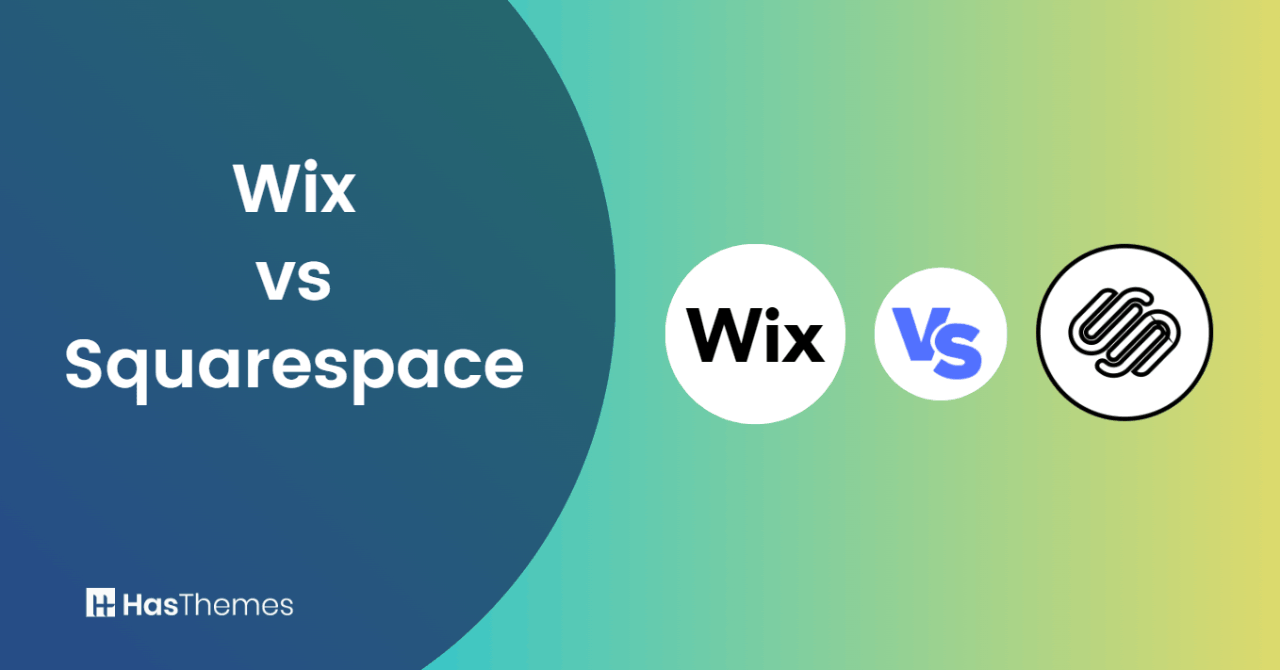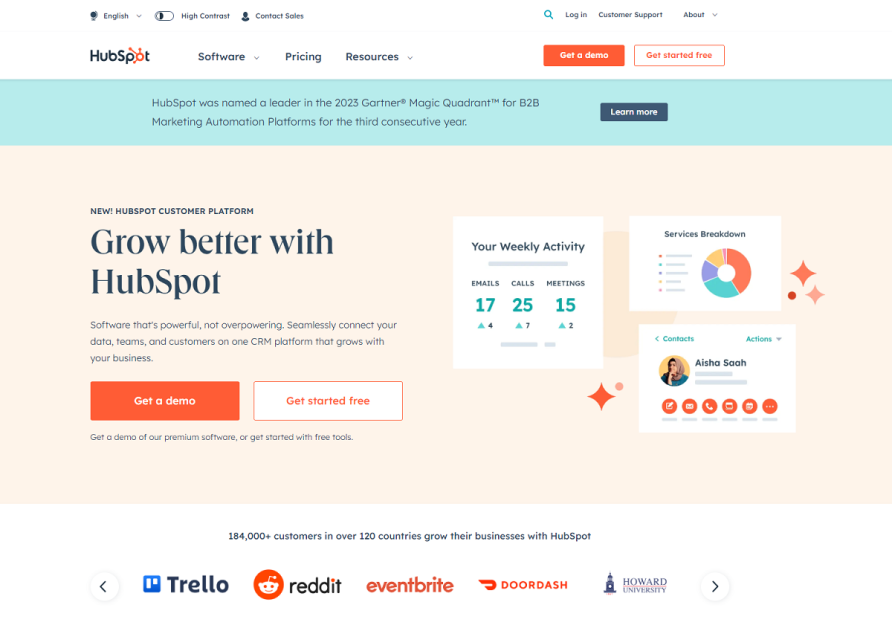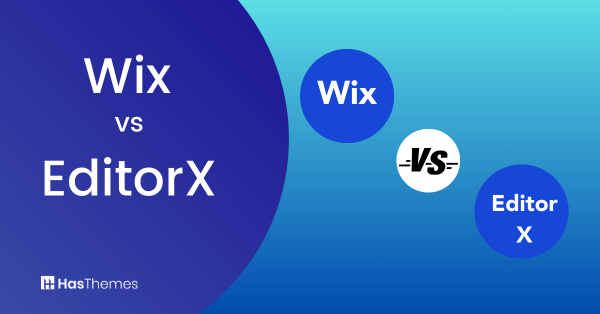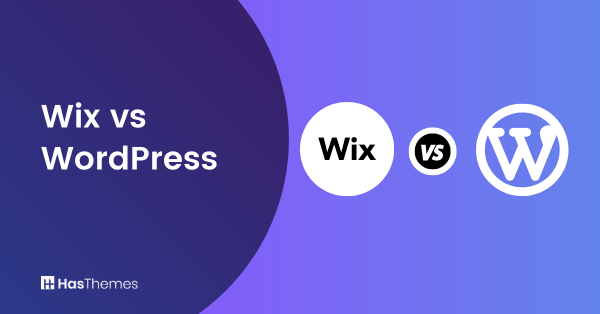
Wix vs Squarespace: Choosing the Right Website Builder for Your Business
When it comes to building a website, having a reliable and user-friendly website builder is essential. Wix and Squarespace are two popular platforms that offer intuitive drag-and-drop functionalities, allowing businesses to create professional-looking websites without any coding knowledge.
This article will compare and contrast Wix vs Squarespace, exploring their key features, customization options, eCommerce capabilities, SEO optimization, and support offerings. By the end of this article, you will have a clear understanding of which platform best suits your business needs.
A Brief Overview of Wix

Wix is a user-friendly website builder that simplifies the process of creating a stunning online presence. With Wix, you don’t need to be a coding expert. It offers an intuitive interface that empowers anyone to design and customize their website effortlessly. This platform comes loaded with an array of pre-designed elements and blocks, allowing you to piece together your website like a digital puzzle.
Whether you’re starting a blog, an eCommerce store, or a professional portfolio, Wix offers versatile templates and tools to meet your specific needs. Its drag-and-drop functionality, coupled with a vast library of apps and plugins, makes it one of the top choices for website building. Dive into Wix and unlock the potential to create a visually appealing, functional website without the hassle of coding.
A Brief Overview of Squarespace
Squarespace stands out as a user-friendly website builder, catering to both creative individuals and website owners seeking to craft visually stunning websites without the need for coding expertise. With its intuitive platform, anyone can create a captivating website featuring integrated eCommerce checkout tools, a personalized domain name, and SSL certificate protection for added security.

Getting started is a breeze – simply create an account, choose a template that aligns with your vision, and customize it to suit your unique requirements. Squarespace boasts a diverse range of exquisite design options, making it a top choice in the eCommerce and online selling arena. While accessible to all, it particularly shines as a platform tailored for designers, artists, photographers, and other creative professionals. Whether you’re launching a personal blog or an eCommerce site, Squarespace empowers you to bring your digital vision to life effortlessly.
Comparison Between Wix vs Squarespace
Wix and Squarespace are two popular website builders, each with its own set of features and advantages. Here’s a comparison of Wix vs Squarespace to help you choose the one that suits your needs:
Editor
Wix’s Unstructured Editor
Wix’s Unstructured Editor provides a blank canvas and over 900 customizable templates, offering immense creative freedom. It boasts thousands of elements, enabling users to add images, text, videos, and more. With drag-and-drop functionality, everything can be fine-tuned, and there’s a dedicated mobile editor for optimizing the mobile experience. For those with coding skills, Velo by Wix allows for further customization.
Squarespace’s Structured Editor
On the other hand, Squarespace’s Structured Editor is user-friendly, offering a tutorial for beginners and a checklist for guidance. It uses a more section-based approach, which may require a bit of adjustment but results in a clean and organized site design.
Templates
Wix Templates
Wix offers an unstructured editor, providing users with a blank canvas or a choice of over 900 customizable templates. It boasts thousands of elements, including images, text, video, and interactive features, all easily draggable and customizable. Wix’s mobile editor allows tailored designs for mobile users, optimizing their experience. For those wanting more, Velo by Wix offers custom code integration.
Squarespace Templates
In contrast, Squarespace uses a structured editor, starting with a helpful tutorial and checklist. It’s a drag-and-drop builder, but it operates in a more section-based manner, promoting cleaner site design. While it might take a bit longer to master, this structure ensures a tidy overall design.
Features
Wix Features
Wix’s feature highlights include a robust App Market for easy integrations, free domain names with annual premium plans, social media integration, SEO tools through Wix SEO Wiz, and built-in security features like SSL certificates and backups. Additionally, Wix offers an all-in-one marketing suite called Wix Ascend for email marketing, live chat, and automation.
Squarespace Features
Squarespace, on the other hand, provides features like Google AMP support, advanced SEO options (Slug, Title, & Description), RSS Feed, and social sharing. Notably, Squarespace excels in content creation with the ability to have multiple authors on a single post, custom social images for sharing, and a versatile blog editor, allowing integration of Instagram feeds, galleries, newsletter forms, event tickets, restaurant menus, and more.
eCommerce
Wix eCommerce
When comparing Wix vs Squarespace in terms of eCommerce features, both platforms offer robust tools for businesses to establish a strong online presence. Wix’s eCommerce platform equips businesses with professional tools to sell across various channels, including web and mobile storefronts, social media, online marketplaces, and even physical retail locations. Notably, Wix allows offline sales with payment upon delivery, offering flexibility.
Squarespace eCommerce
On the other hand, Squarespace provides a user-friendly shopping cart system and supports an unlimited number of products, whether physical goods, digital items, services, or subscriptions. With the capability to create six product options and up to 250 product variants, Squarespace offers versatility in presenting your goods online. Additionally, Squarespace excels in subscription functionality, making it seamless to accept recurring payments for products or services. Both platforms have their strengths, catering to different business needs and preferences.
Mobile Apps
Wix Mobile App
Wix’s mobile app offers a range of features, including reports, live chat, email campaigns, social media management, blog upkeep, and store management. However, it lacks the ability to create web pages due to Wix’s unstructured editor. To build your website on a mobile device, you have two options: you can utilize the Wix Owner app, or you can visit Wix.com through your mobile browser.
Squarespace Mobile App
On the other hand, Squarespace’s mobile app provides comprehensive functionality. Users can create content, manage their stores, and expand their businesses from anywhere with a smartphone and internet connection. Notably, Squarespace’s structured editor allows users to edit their entire websites through the app, in addition to tasks like product management, analytics tracking, SEO optimization, and inventory management.
SEO
Wix SEO Tools
Wix excels in SEO by allowing users to edit meta titles and descriptions, customize URLs, and even tweak header code. This platform is known for its built-in SEO tools that assist in achieving high Google rankings. Notably, Google Analytics is available only for paid plans, which may be a consideration for some users. Recent improvements, such as Semrush integration and keyword support, have enhanced Wix’s SEO offerings.
Squarespace SEO Tools
Squarespace also provides meta descriptions and customized URLs for all pages. What sets Squarespace apart is that Google Analytics is available for every plan, ensuring comprehensive tracking and analysis. Squarespace also offers an SEO plugin named SEOSpace, which automatically generates a sitemap.xml file. It emphasizes clean HTML markup and responsive design, making websites mobile-friendly, a critical factor for Google’s ranking algorithm. Squarespace also incorporates some AMP (Accelerated Mobile Pages) features, further enhancing its SEO capabilities.
Pricing
Wix Pricing
One of the cheapest website builders, Wix offers 3 different types of plans.
- Website plans
- Business and eCommerce plans
- Enterprise plan
The Website plans are as follows:
- Connect Domain – $4.50/mo
- Combo – $8.50/mo
- Unlimited – $12.50/mo
- VIP – $24.50/mo
The eCommerce plans are as follows:
- Business Basic – $17/mo
- Business Unlimited – $25mo
- Business VIP – $35/mo
The Enterprise plans are as follows:
- Custom – Built for large-scale businesses
Squarespace Pricing
Squarespace offers four different types of plans-
- Personal – $23/mo (billed monthly) and $16 /mo (billed yearly)
- Business – $33/mo (billed monthly) and $23 /mo (billed yearly)
- Basic Commerce – $36/mo (billed monthly) and $27 /mo (billed yearly)
- Advanced Commerce – $65/mo (billed monthly) and $49 /mo (billed yearly)
Frequently Asked Questions
Which platform offers more customization options?
Both platforms offer customization, but Wix provides more flexibility in terms of design and functionality. Squarespace focuses on providing sleek, pre-designed templates.
Are there eCommerce capabilities on both platforms?
Yes, both Wix and Squarespace offer eCommerce functionality. Wix has extensive eCommerce features, while Squarespace provides a more integrated design and eCommerce experience.
Do I need coding knowledge to use Wix or Squarespace?
No, coding knowledge is not required for either platform. Both offer intuitive, user-friendly interfaces that allow you to build a website without coding.
Which platform is better for blogging?
Squarespace is often favored for blogging due to its clean and elegant templates, but Wix also offers solid blogging features with a broader range of templates.
Can I use my own Domain with Wix and Squarespace?
Yes, both platforms allow you to use your custom domain with their premium plans. They also offer domain registration services.
Check out the Alternatives
WordPress
WordPress is a widely popular and user-friendly platform for creating websites and blogs. It’s renowned for its simplicity and is especially valued for being free and open-source software. Although you may need to pay for hosting, you won’t incur charges just for using WordPress.

From a technical standpoint, WordPress is an open-source content management system (CMS). This open-source nature means that anyone can freely use or modify the WordPress software. A CMS is essentially a tool that simplifies the management of critical aspects of a website, such as its content, without requiring any programming knowledge.
Feature list:
- Flexible
- Blog functionalities
- Numerous themes
- Easy to Use
- 100% responsive design
Pricing: WordPress offers six different types of plans-
- Free
- Personal – $9/mo (billed monthly) and $4 /mo (billed yearly)
- Premium – $18/mo (billed monthly) and $8/mo (billed yearly)
- Business – $40/mo (billed monthly) and $25/mo (billed yearly)
- WooCommerce – $70/mo (billed monthly) and $45 /mo (billed yearly)
- Enterprise – Starts at US$25,000 yearly.
Webflow
Webflow is a revolutionary departure from conventional website builders. Unlike typical platforms, it eliminates the need for designers to rely on developers to bring their website designs to life. This makes it an ideal choice for designers and advanced users who want to independently create websites, offering them unparalleled design flexibility beyond what traditional builders like Squarespace or Weebly can provide.

With the Webflow editor, you have complete control to design and construct fully responsive websites. What truly sets it apart is the ability to customize mobile versions, a feature that distinguishes it from most other website builders.
Notably, you can implement site-wide changes directly within the visual editor, bypassing the need for plugin installations or coding expertise. This unique approach positions Webflow as a powerful tool for crafting intricate and visually stunning web experiences, empowering designers to bring their creative visions to life with precision and ease.
Feature list:
- Diverse Template Collection
- Search Engine Optimization (SEO)
- Google Analytics Integration
- Blazing-Fast Load Times
- Responsiveness
Pricing: Webflow offers two different types of pricing plans.
- Site plans
- eCommerce plans
The site plans are as follows:
- Starter – Free
- Basic – $18/mo (billed monthly) and $14 /mo (billed yearly)
- CMS – $29/mo (billed monthly) and $23 /mo (billed yearly)
- Business- $49/mo (billed monthly) and $39 /mo (billed yearly)
The eCommerce plans are as follows:
- Standard – $42/mo (billed monthly) and $29 /mo (billed yearly)
- Plus – $84/mo (billed monthly) and $74 /mo (billed yearly)
- Advanced – $235/mo (billed monthly) and $212/mo (billed yearly)
Shopify
Shopify is a comprehensive eCommerce platform designed to empower entrepreneurs and businesses in every stage of their journey. Its wealth of expertise and industry leadership is derived from the success stories of countless merchants who have thrived on the platform.

With Shopify, merchants gain the ability to construct and personalize their own online stores, all while enjoying the flexibility of selling across various channels and platforms. Whether it’s through web and mobile, in-person transactions, brick-and-mortar stores, or pop-up shops, Shopify offers a versatile solution. It seamlessly integrates with social media and online marketplaces, expanding your reach.
One of Shopify’s key advantages is its cloud-based and hosted nature, ensuring accessibility from any internet-connected device. Plus, Shopify takes care of software updates and server maintenance, allowing you to manage and run your business from virtually anywhere. It’s a platform that’s as flexible as it is empowering for businesses looking to thrive in the digital age.
Feature list:
- Product Management
- Payment Options
- eCommerce Analytics
- Fast Load Times
- Support
Pricing: One of the cheapest website builders, Shopify offers 2 different types of plans.
- Monthly plans
- Yearly plans
The monthly plans are as follows:
- Basic – $25/mo
- Shopify – $65/mo
- Advanced – $399/mo
The yearly plans are as follows:
- Basic – $19/mo
- Shopify – $649/mo
- Advanced – $299/mo
HubSpot CMS
The HubSpot Content Management System (CMS) offers a comprehensive solution for building and managing websites tailored for those with a professional-level understanding of web development basics, including HTML, JavaScript, and CSS. This overview aims to provide insights into the key facets of HubSpot CMS to empower users to create exceptional websites.

Central to HubSpot CMS is content enablement. It facilitates business growth by placing a strong emphasis on empowering marketers to create and manage content efficiently. This CMS seamlessly integrates website content, lead collection mechanisms, and analytics with the HubSpot CRM. This integration streamlines the process of creating personalized experiences for website visitors and harmonizes these experiences with the broader business strategy.
Whether you are new to HubSpot CMS or an experienced user, it serves as a versatile tool for enhancing your web presence and achieving your marketing objectives.
Feature list:
- Templates
- Modules
- Smart Content
- Smart CTA
- Strong Community support
Pricing: The HubSpot CMS plans are as follows:
- Free
- Starter – $20/mo (billed monthly) and $18 /mo (billed yearly)
- Professional – $890/mo (billed monthly) and $800/mo (billed yearly)
Conclusion
After closely analyzing and comparing Wix vs Squarespace, it is clear that each platform has its own unique strengths and weaknesses. Squarespace offers sleek and sophisticated designs, while Wix offers a wider range of customization options. Both platforms have user-friendly interfaces, although Squarespace’s may be more intuitive for those with limited website building experience.
Ultimately, the decision between Wix vs Squarespace will depend on the specific needs and goals of each user. While each platform may suit certain industries or types of websites better than the other, both are reliable and effective website builders that can produce stunning results.






